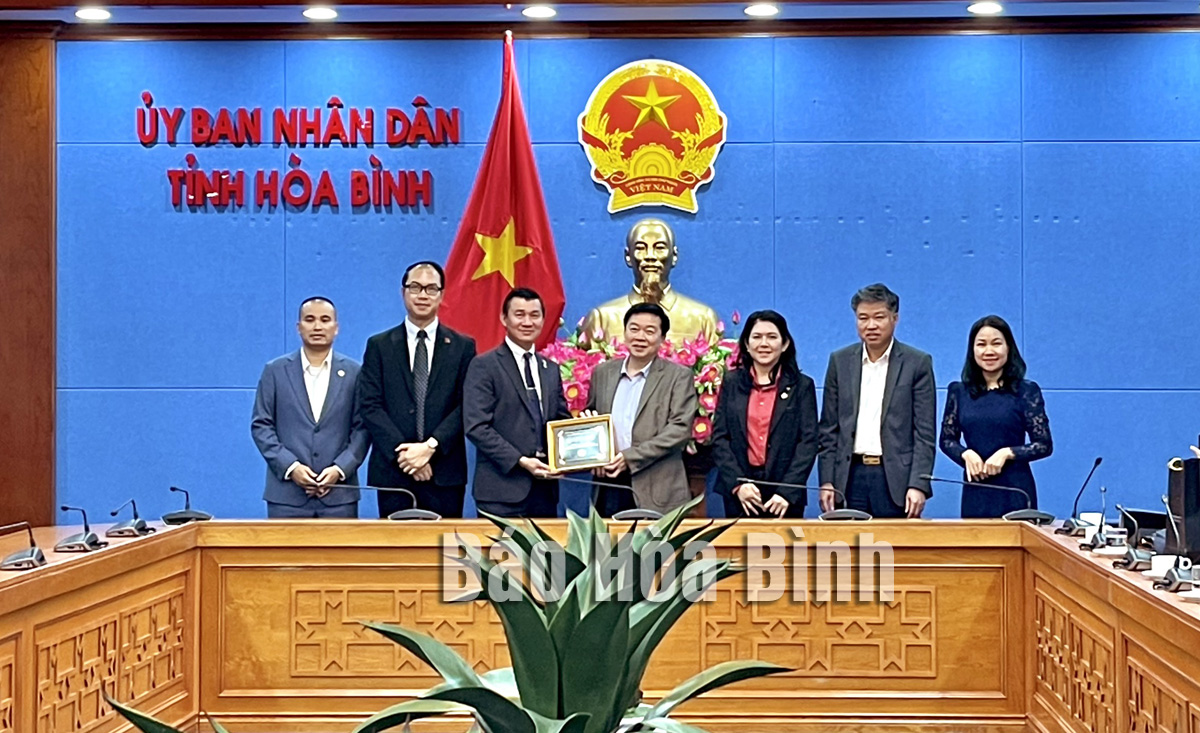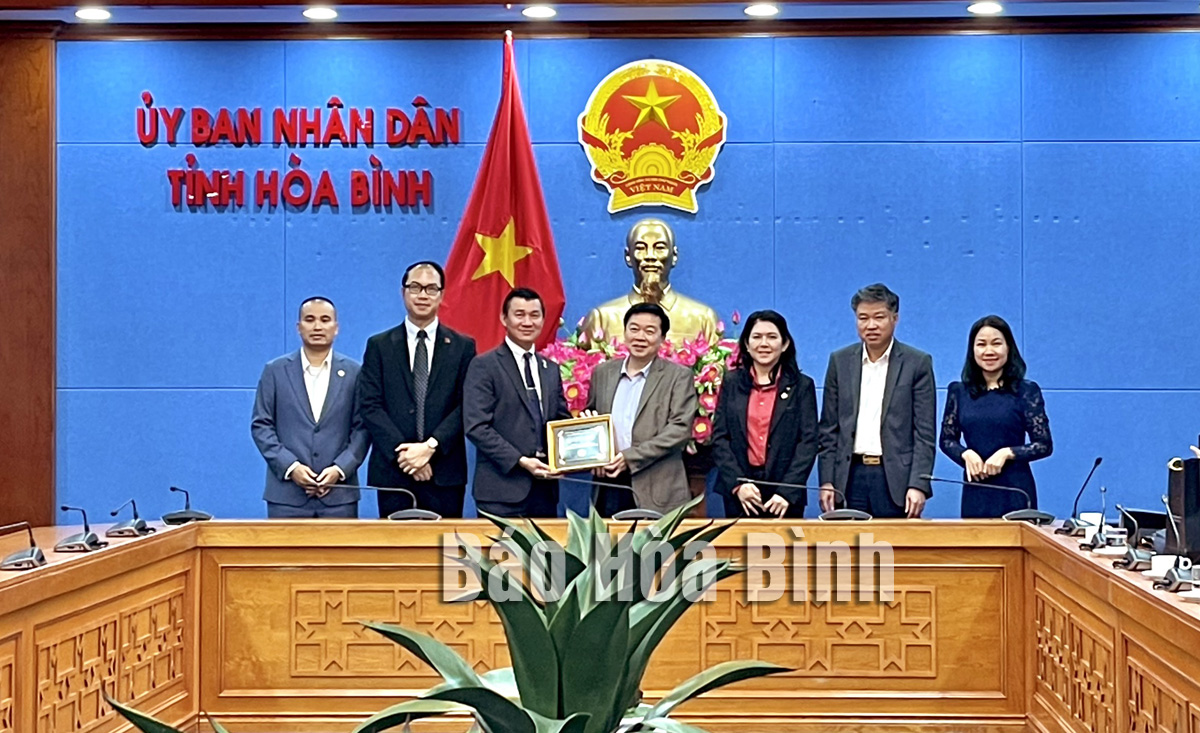
(HBO) – On March 2, the Hoa Binh People’s Committee held a working session with the Vietnamese Business Association in Japan (VJBA). The session was chaired by Nguyen Van Chuong, Vice Chairman of the provincial People’s Committee.
Representatives from the Vietnamese Business Association in Japan
present a souvenir to leaders of the Hoa Binh People’s Committee.
Currently, Japanese businesses have invested about 343.3 million USD in Hoa
Binh, mostly in Da River’s left bank industrial park, Luong Son industrial park
and other areas.
The VJBA has been operating for 11 years, focusing on giving career guidance to
the youth in Japan, sending high quality human resources of Vietnam to Japan,
exporting Vietnamese products to Japan through official channels, and
connecting businesses of the two countries, especially among small- and medium-sized
enterprises.
Representatives from the association expressed their hope for Hoa Binh’s
support and coordination to train Japanese-speaking workers and introduce high
quality agricultural products of Hoa Binh to Japanese consumers.
The two sides discussed conditions, potential and advantages for the local
development, challenges for investment connectivity and promotion activities as
well as human resources training, the connections among businesses and the sale
of farm produce in Hoa Binh and Japan.
Addressing the session, Vice Chairman Chuong said that this visit by Vietnamese
businesses in Japan to explore the local investment environment is a meaningful
activity on the occasion of the 50th anniversary of the bilateral diplomatic
relations.
Hoa Binh is keen on bringing more products and workers to Japan, he said,
expressing his hope that the VJBA will serve as a bridge connecting the
province and Japan in the fields of culture, politics and diplomacy.
He assigned the Hoa Binh Investment, Trade and Tourism Promotion Centre to act
as a connection point of the province, linking local departments, sectors and
trade associations to take steps to effectively implement cooperation
activities with the VJBA.
Hoa Binh’s gross regional domestic product (GRDP) grew 9.03% last year, with
per capita income reaching 66.7 million VND (2,827 USD) per year. The rate of
trained labourers was 59.2%.
The province has 729 private investment projects, of which foreign invested
ones account for 5%, valued at 608 million USD. Japanese enterprises have
poured 343.3 million USD into projects in the locality./.
According to data from the Hoa Binh Provincial Party Committee, the industrial production index for the first six months of 2025 is estimated to have increased by 20% compared to the same period last year. This marks the highest year-on-year growth rate for this period since 2020.
In the first six months of 2025, Hoa Binh province’s export turnover was estimated at 1.145 billion USD, marking an 18.11% increase compared to the same period in 2024. Import turnover was estimated at $ 804 million, a 17.15% increase, which helped the province maintain a positive trade balance.
The lives of the ethnic minority farmers in Tan Lac district have gradually improved thanks to the new directions in agricultural production. This is a testament to the collective strength fostered through the professional associations and groups implemented by various levels of the district’s Farmers’ Union.
With the motto the "product quality comes first,” after nearly one year of establishment and operation, Muong village’s Clean Food Agricultural and Commercial Cooperative, located in Cau Hamlet, Hung Son Commune (Kim Boi district), has launched reputable, high-quality agricultural products to the market that are well-received by consumers. The products such as Muong village’s pork sausage, salt-cured chicken, and salt-cured pork hocks have gradually carved out a place in the market and they are on the path to obtaining the OCOP certification.
In the past, the phrase "bumper harvest, rock-bottom prices" was a familiar refrain for Vietnamese farmers engaged in fragmented, small-scale agriculture. But today, a new spirit is emerging across rural areas of Hoa Binh province - one of collaboration, organisation, and collective economic models that provide a stable foundation for production.
Maintaining growing area codes and packing facility codes in accordance with regulations is a mandatory requirement for agricultural products to be eligible for export. Recently, the Department of Agriculture and Environment of Hoa Binh province has intensified technical supervision of designated farming areas and packing facilities to safeguard the "green passport" that enables its products to access international markets.



